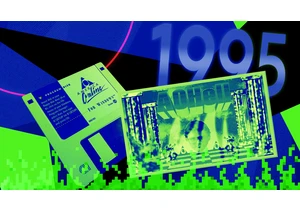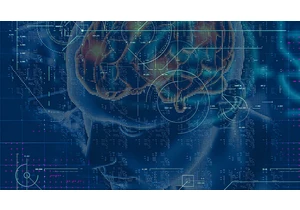The looming AI revolution continues to make headlines. Yet, what might come as a surprise to many is the fact that many examples of this transformative technology are going to be available to consumers starting this year. In fact, Lenovo—the world’s leading personal computer company—has already established a sizable presence in the soon-to-take-off AI PC space. The company has invested more than $1 billion developing AI-powered solutions that are poised to redefine the user experience. “For AI to be truly revolutionary,” explains Luca Rossi, EVP and president of Intelligent Devices Group at Lenovo, “it must facilitate interactions that feel natural and intuitive.”
To Rossi and his colleagues, this means leveraging the power of AI to make the user experience more personalized and human-centric. By “examining” the stream of words and data entered on your keyboard, Lenovo’s AI PCs and laptops use on-device personal foundation models. These will eventually evolve to anticipating your needs and proactively offering solutions, from tracking (and eventually, maintaining) your calendar to drafting emails and work documents that reflect your personal writing style and vocabulary. The kind of AI experiences that Lenovo wants to deliver might be summarized simply as: It’s all about you.
Lenovo recently unveiled more than 40 new devices and solutions that demonstrate the breadth of its AI innovations across its popular PC sub-brands, (e.g. ThinkPad, Yoga, ThinkBook, and Legion). These new Lenovo AI PCs are ready to support local and hybrid AI applications coming to market—all in a more secure and reliable way. Here, we take a close look at three of these laptop product lines and how they demonstrate the company’s vision of leading “AI for All.”
CREATIVE CONTROL
The first is the Lenovo Yoga Creator Zone, which will be on some new Yoga laptops, such as the latest Yoga Pro 9i, in select markets. Rossi says, “Designed to help creative types flex their imagination,” Lenovo Creator Zone is a powerful local image-generation tool that turns text-based descriptions or even simple sketches into stunning visuals. No further prompts or commands are necessary: Creating a visual representation of, say, “an SUV hauling a sailboat up a steep hill” simply means typing in those words.
And because Lenovo Creator Zone is client-based—stored on the laptop rather on a remote server—users in most markets do not need an internet connection for local image generation. This feature, in addition to letting you work practically anywhere, also underscores the company’s commitment to privacy and security. “The best part is this tool will offer personalized training, giving our users access to a customized AI experience virtually anywhere, any time,” Rossi says.
GAMING THE SYSTEM
Integrated into the latest gaming laptops in the popular Legion and LOQ lines is the Lenovo AI chip, a family of proprietary hardware that monitors a stream of information that manages to boost performance while simultaneously increasing battery efficiency. “Our latest AI chips deliver a better user experience,” Rossi says, pointing out that increased frame rates translate to smoother and faster on-screen motion. And understanding that diehard PC gamers tinker with their machines to gain even the smallest competitive advantage, Lenovo gives them greater granular control over AI-assisted settings, including overclocking, fan speed, and thermal settings.
THE PERSONAL TOUCH
The Lenovo AI Now Personal Assistant—rolling out in China on select devices, such as ThinkBook and ThinkPad, is a suite of virtual-assistant tools that reflects the company’s focus on personalized AI solutions. The “PA” will learn about the user through daily keyboard interactions and the user’s data and documents in an on-device knowledge base. By harnessing the power of AI to process “natural language”—the way we talk when speaking conversationally—Lenovo AI Now aims to help fulfill Lenovo’s goal of moving to more human-centric ways of interacting with your PC.
Using natural language, users can create meeting invitations, change system settings, search, and get summaries of documents and emails. And because AI PCs are dynamic knowledge reservoirs that use advanced on-device AI foundation models, your Lenovo laptop will only get “smarter” about you: The more you engage with it, the more it becomes truly “yours.”
Rossi is enthused about introducing a new kind of PC and device user experience he thinks will eventually be just as transformational and profound as the technological leap from feature phones to smartphones. (In the next two to three years, he predicts, 70% of devices will be AI-native.) Arriving there means finding solutions for a quickly expanding number of tasks: knowledge management, workflow automation, code and creative-content generation, personalized assistance, and security management, to name but a few. Yet even now, Rossi sees a steady timeline leading to a new kind of device—one that is “always available, more user-centric and conversational, and personalized in ways we haven’t yet imagined.”
Click here to learn more about how Lenovo AI is making PCs even more personal.
Login to add comment
Other posts in this group

If you’ve built an audience around documenting your 9-to-5 online, what happens after you hand in your notice?
That’s the conundrum facing Connor Hubbard, aka “hubs.life,” a creator who

OpenAI should continue to be

WhatsApp should prepare to leave the Russian market, a lawmaker who regulates the IT sector

This is an edition of Plugged In, a weekly newsletter by Fast Company global technology editor Harry McCracken. You can sign up to receive it each Friday and read all issues



Big changes are coming to the web in the days ahead. On July 25, the U.K.’s Online Safe
